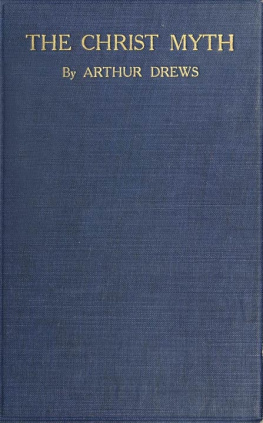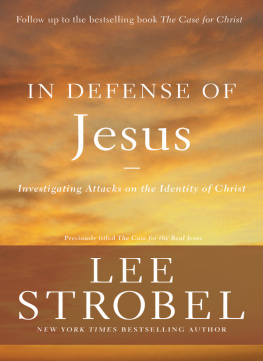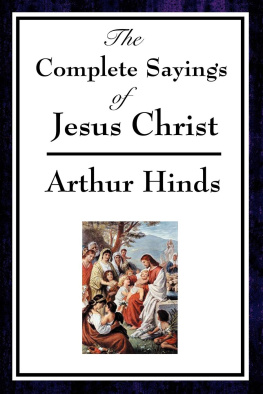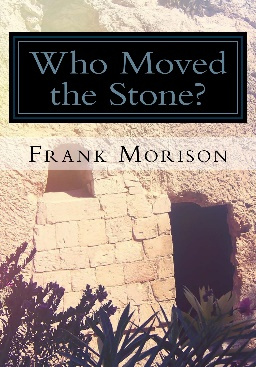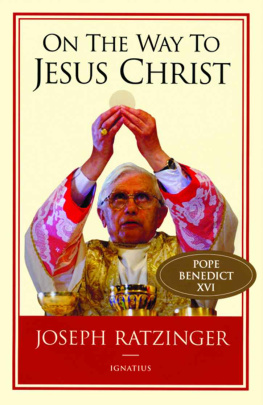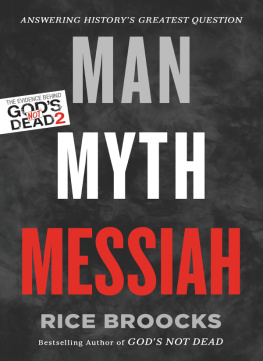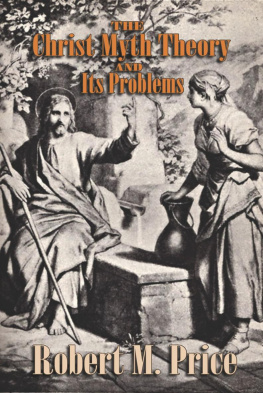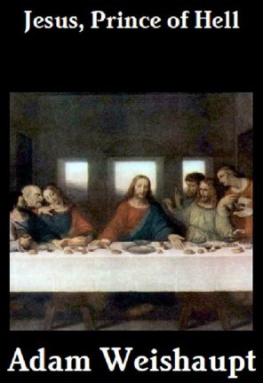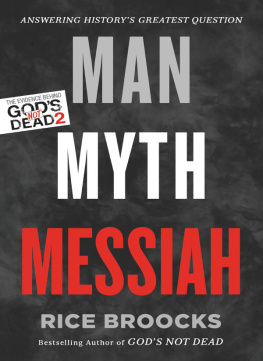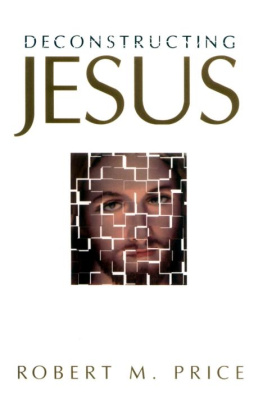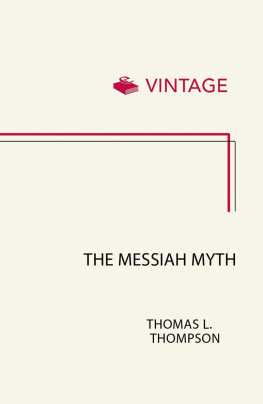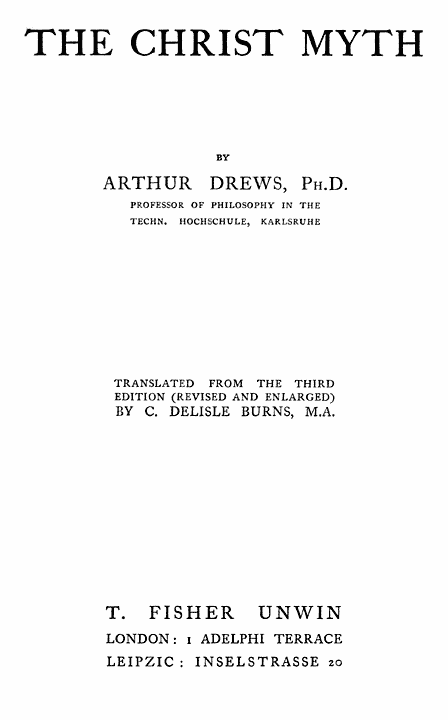PREFACE TO THE FIRST AND SECOND EDITIONS
Since David Frederick Strauss, in his Life of Jesus, attempted for the first time to trace the Gospel stories and accounts of miracles back to myths and pious fictions, doubts regarding the existence of an historical Jesus have never been lulled to rest. Bruno Bauer also in his Kritik der evangelischen Geschichte und der Synoptiker (184142, 2nd ed. 1846), disputed the historical existence of Jesus; later, in his Christ und die Csaren, der Ursprung des Christentums aus dem rmischen Griechentum (1877), he attempted to show that the life of Jesus was a pure invention of the first evangelist, Mark, and to account for the whole Christian religion from the Stoic and Alexandrine culture of the second century, ascribing to Seneca especially a material influence upon the development of the Christian point of view. But it was reserved for the present day, encouraged by the essentially negative results of the so-called critical theology, to take up the subject energetically, and thereby to attain to results even bolder and more startling.
In England John M. Robertson, in Christianity and Mythology (1900), in A Short History of Christianity (1902), as well as in his work Pagan Christs: Studies in Comparative Hierology (1903), has traced the picture of Christ in the Gospels to a mixture of mythological elements in heathenism and Judaism.
In France, as early as the end of the eighteenth century, Dupuis ( Lorigine de tous les cultes , 1795) and Voltaire ( Les Ruines , 1791) traced back the essential points of the history of the Christian redemption to astral myths, while mile Burnouf ( La science des religions , 4th ed., 1885) and Hochart ( tudes dhistoire religieuse , 1890) collected important material for the clearing up of the origin of Christianity, and by their results cast considerable doubt upon the existence of an historical Christ.
In Italy Milesbo (Emilio Bossi) has attempted to prove the non-historicity of Jesus in his book Ges Christo non mai esistito (1904).
In Holland the Leyden Professor of Philosophy, Bolland, handled the same matter in a series of works ( Het Lijden en Sterven van Jezus Christus, 1907; De Achtergrond der Evangelin . Eene Bijdrage tot de kennis van de Wording des Christendoms, 1907; De evangelische Jozua. Eene poging tot aanwijzing van den oorsprong des Christendoms, 1907 ).
In Poland the mythical character of the story of Jesus has been shown by Andrzej Niemojewski in his book Bg Jezus (1909), which rests on the astral-mythological theories of Dupuis and the school of Winckler.
In Germany the Bremen Pastor Kalthoff, in his work, Das Christusproblem, Grundlinien zu einer Sozialtheologie (1903), thought that the appearance of the Christian religion could be accounted for without the help of an historical Jesus, simply from a social movement of the lower classes under the Empire, subsequently attempting to remove the one-sidedness of this view by his work Die Entstehung des Christentums. Neue Beitrge zum Christusproblem (1904). (Cf. also his work Was wissen wir von Jesus? Eine Abrechnung mit Professor D. Bousset , 1904.) A supplement to the works of Kalthoff in question is furnished by Fr. Steudel in Das Christusproblem und die Zukunft des Protestantismus (Deutsche Wiedergeburt, 1909) .
Finally, the American, William Benjamin Smith, in his work, The Pre-Christian Jesus (1906), has thrown so clear a light upon a number of important points in the rise of Christianity, and elucidated so many topics which give us a deeper insight into the actual correlation of events, that we gradually commence to see clearly in this connection.
The time is passed, says Jlicher, when among the learned the question could be put whether an historical Jesus existed at all.
It has, moreover, passed Kalthoff over with the mien of a better informed superiority or preferably with silent scorn, and up to the present it has avoided with care any thoroughgoing examination of Smith. And yet such a distinguished theologian as Professor Paul Schmiedel, of Zrich, who furnished a foreword to Smiths work, laid such an examination upon his colleagues as a duty of all theologians making any claim to a scientific temper, and strongly warned them against any under-estimation of Smiths highly scientific work! How can one then confidently stand by his former views, Schmiedel cries to his theological colleagues, unless he investigates whether they have not in whole or in part been undermined by these new opinions? Or is it a question of some secondary matter merely, and not rather of exactly what for the majority forms the fundamental part of their Christian conviction? But if these new opinions are so completely futile, then it must be an easy matter, indeed a mere nothing, to show this.
In the meantime there are many voices which speak out against the existence of an historical Jesus. In wide circles the doubt grows as to the historical character of the picture of Christ given in the Gospels. Popular works written with a purpose, such as the investigations of the Frenchman Jacolliot, worked up by Plange into Jesus ein Inder (1898), have to serve to alleviate this thirst for knowledge and confuse views more than they clear them. In a short work, Die Entstehung des Christentums (1905), Promus has afforded a brief rsum of the most important matter bearing on the point, without any working up of it on its own account, and attacked the existence of an historical Jesus. Lately Karl Voller, the prematurely deceased Jena Orientalist, in his valuable work, Die Weltreligionen in ihrem geschichtlichen Zusammenhange (1907), voiced the opinion that weighty reasons favour this radical myth interpretation, and that no absolutely decisive arguments for the historicity of the person of Jesus can be brought forward (op. cit. i. 163).
Another Orientalist, P. Jensen, in his work Das Gilgamesch-Epos in der Weltliteratur (1906), even thinks that he can show that both the main lines of the Old Testament story and the whole narrative of the life of Jesus given in the Gospels are simply variations of the Babylonian Gilgamesh Epic (about 2000 B.C. ), and consequently a pure myth.
While criticism of the Gospel documents is advancing more boldly and always leaving in existence less of an historical Jesus, the number of works in popular religious literature intended to glorify Jesus the man grows enormously. These endeavour to make up for the deficiency in certain historical material by sentimental phrases and the deep tone of conviction; indeed, the rhetoric which is disseminated with this designexistence of Jesus loses all paradox which hitherto may have attached to it in the eyes of many. So, too, Protestant theology no longer has any grounds for becoming excited if the question is answered in a sense opposed to its own answer.

